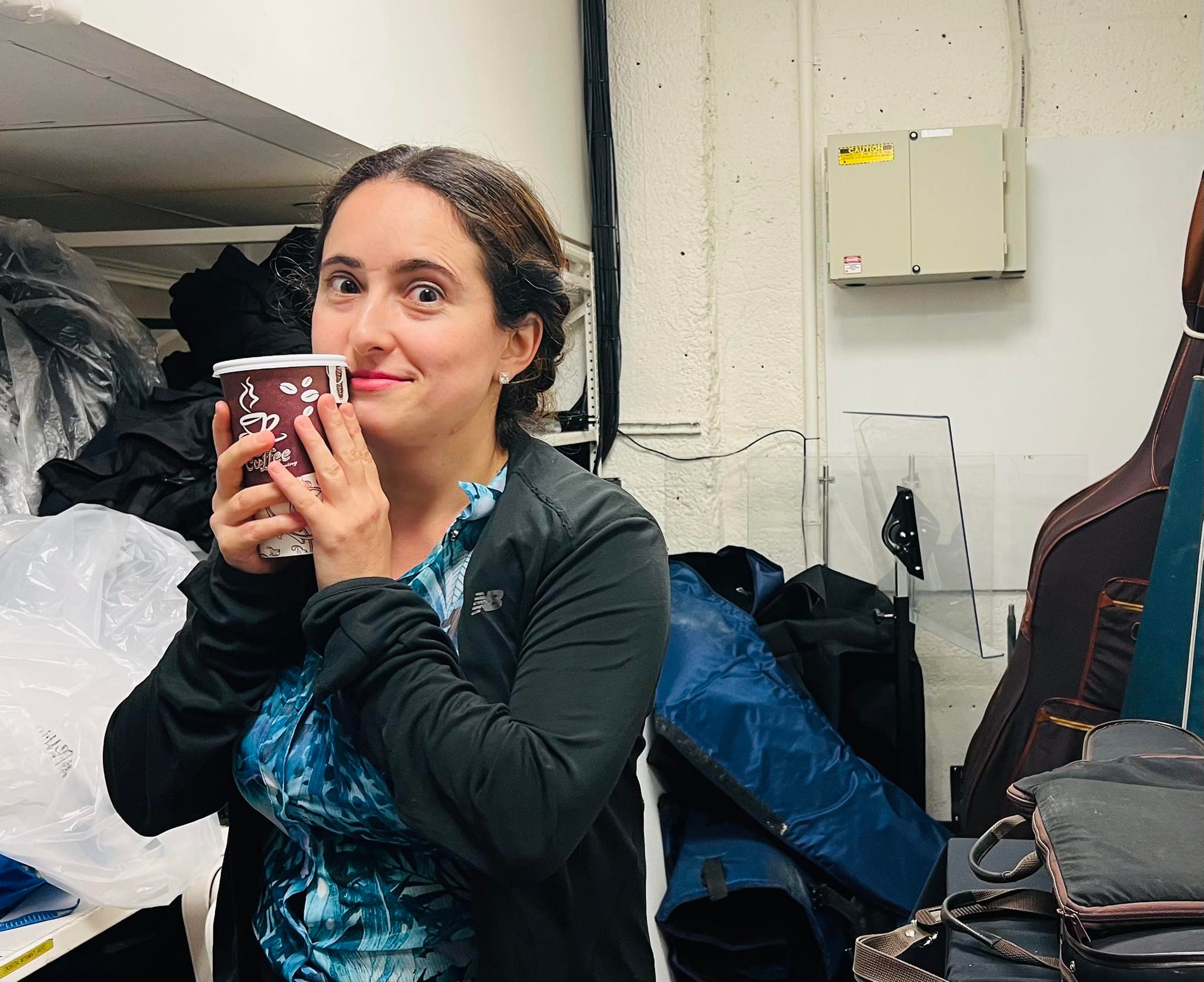
Did you know that coffee is a natural performance booster? In fact, the World Anti-Doping Agency (WADA) has put limits on the amount of caffeine that professional athletes can (legally) consume. Research shows that caffeine improves endurance and muscular strength. Many of my colleagues think I’m crazy for running to Starbucks about an hour before orchestra concerts. It’s apparently become quasi-routine for me to have half a cup of black coffee (or tea) and a slice of banana nut bread, or something similar, as part of my pre-stage routine. Thankfully, musicians are safe from the rules of WADA (for now).
Unpopular Needs
Of course, too much of anything can have adverse effects. “Oh no, I could never do that; my bow would shake SO much and I’d be extra nervous!” was the reaction of several musicians when they saw me with a cup of strong black tea from the corner deli about an hour before I had to get on stage to perform Prokofiev’s Violin Concerto #2. See the featured photo of this blog post for reference – it’s from that evening! That was also my very first time playing a major concerto with orchestra! I never knew how to respond sensibly to such remarks. Thankfully, one of my friends in the orchestra understood, and offered me a coffee bean to snack on.
You see, I’m someone who very frequently deals with performance anxiety – coffee or no coffee. This is especially a challenge with orchestra auditions and solo performances, to which I’m sure many other musicians, professional and amateur alike, can relate. I’ve tried taking auditions with and without caffeine in my system. I would be equally nervous in both scenarios – but according to history, I have a much higher chance of playing with a weak tone if I’m not energized and focused enough. The reaction to try to “correct” the tone in that kind of moment would be to tense up and try to “power through” rather than to center my energy to allow a for a more focused and clear tone with a relaxed body. Of course, playing while being too high on energy can be equally as bad – higher chance for unsteady tempo and unusual mistakes.
Logically, it makes perfect sense that caffeine can make one more jittery, especially if it’s not something consumed frequently. However, since I’m accustomed to consume caffeine throughout the day in various forms, intentionally cutting it out on the day of a big event might cause withdrawal symptoms such as headaches, lack of concentration, and playing with low energy. Who knows…maybe in a different season of life, my habits and/or needs will change.
Individual Zone of Optimal Functioning
What continued to be mind-boggling to me, is the fact that a very large amount of musicians I know are coffee drinkers, but before a certain performance they might choose to change up routines. For many, this works wonderfully and for so long, I couldn’t understand why something that works for them wouldn’t work for me. That is, until I better understood the concept known as “Individual Zone of Optimal Functioning” (IZOF for short) and how it might apply to me. In fact, Noa Kageyama (AKA the bulletproof musician) just recently updated an older article about it: https://bulletproofmusician.com/what-does-it-mean-if-im-nervous-before-a-big-performance/
In short, the IZOF is a model/chart, shaped like an inverse letter U, that represents the relationship between one’s level of performance and their level of arousal (this includes emotions, amount of attention present, and stress levels). In the “classic” chart, this optimal zone would be somewhere in the middle, where a moderate amount of arousal is necessary to perform at one’s highest level in the particular moment. Too little, the performance is boring and lacking energy. Too high, it’s frantic and gets out of control.
Arousal Levels and Personal Identity
What’s easy to misunderstand about the IZOF model is that each individual performs their “best” at different arousal levels. For example, notice the various behaviors of professional musicians backstage before an orchestra concert. Some choose to spend the entire time hanging out with friends, laughing about random things, probably unrelated to music. Others choose to keep to themselves more. Another player might choose a combination of the two. Another might look for a place to be away from the noise for some time and lie down or go for a walk. Finally, there are always the ones practicing up until the very last minute. Whether most of these musicians know about about this concept or not, I do not know. But what I learned most recently, is that one’s IZOF can change, and one factor has to do with their relationship with themselves, and how much their craft (whether it’s music, sport, art, etc) intertwines with their personal identity. More on this in the future.
